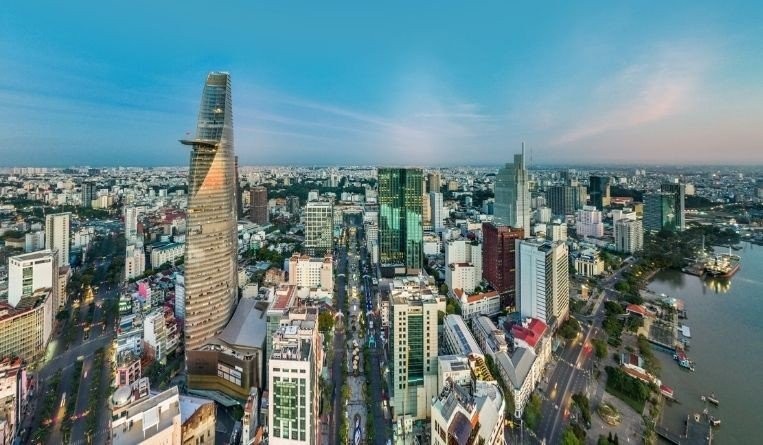New rules on enforcement come into effect in Vietnam
28 October 2020

In Vietnam, Decree No. 98/2020/ND-CP or Decree 98 took effect on October 15, 2020.
The new enforcement decree updates enforcement policies for commercial activities including those involving e-commerce. It replaces Decree No. 185/2013 ND-CP as amended in 2015 and 2018.

First of all, Decree 98 provides a new definition for counterfeit goods. While it includes products with no active ingredients and those with counterfeit labels and packaging design among others, it also strikes out the term “intellectual property counterfeit goods” from the definition. Under Decree 185, the term was included in its definition of counterfeit goods.
According to My Doan, senior associate at Hogan Lovells in Ho Chi Minh, and Tran Manh Hung, country managing partner of BMVN International in Hanoi, member firm of Baker McKenzie, this amendment is consistent and complies with Vietnam’s other existing laws and regulations. These include administrative sanctions and criminal penalties under intellectual property laws.
Loc Xuan Le, a partner and head of IP enforcement at Tilleke & Gibbins in Hanoi, said that changing the definition seems to be a rational move
“This change seems to be rational as definition of intellectual property counterfeit goods is already mentioned under the IP Law and penalties for the violations related to IP counterfeit goods are stipulated under decrees on sanctioning of administrative violations in the industrial property field,” said Le.
Hogan Lovells views the new definition, specifically the removal of the phrase ‘IP counterfeit goods’ under Article 213 of the Law on Intellectual Property, as a major change, said Doan.

“In the past, ambiguities can happen because both Decree 185 and Decree 99/2013 ND-CP on Sanctioning of Administrative Violations in Field of Industrial Property can apply to an act of manufacturing of IP counterfeit goods. From October 15, 2020, such act of manufacturing of IP counterfeit goods, if not simultaneously constituting any act of manufacturing of counterfeit goods governed by Decree 98, could only be sanctioned by Decree 99,” she explained.
That Decree 185 included the term ‘IP counterfeit goods’ to define counterfeit goods while a separate decree provides the relevant sanctions presented a problem, according to Tran.
“Such regulations on counterfeit goods presented some obstacles for competent enforcement authorities in taking actions against IP-related counterfeiting cases,” he said, “especially escalation of an administrative case to criminal prosecution.”
Furthermore, Doan said that Decree 98 defines counterfeit goods in greater detail and is more consistent with its definition in other relevant legal documents.
“For example, in Decree 98, ‘counterfeit drugs’ and ‘counterfeit herbal ingredients’ are defined by referring to the definitions thereof in the Law on Pharmacy,” she explained, “so any inconsistency would no longer exist.”
Even the provisions pertaining to e-commerce activities also appear to ensure the applicability and compliance with the provisions of Law on Invest 2014, Law on Enterprise and Decree No. 52/2013/ND-CP on E-commerce sites and other related regulations, according to Tran.
“The new Decree adds more acts to be considered violations, such as providing information, trading counterfeits, goods, services infringing IP rights, banned goods, services on the Internet, etc,” Tran said. “We expect that such additions are compatible with the current situation and practice. E-commerce business is booming and IP infringements on e-commerce sites have become more sophisticated.”

Yet, for Doan, the new enforcement decree does not adequately cover all or most IP matters concerning e-commerce.
“Decree 98 only covers an act of providing information on, trading in or selling IP infringing goods/services. As explained above, Decree 98 no longer applies specifically to IP counterfeit goods,” she said, “so we believe it becomes less tailored for IP matters.”
One of the remedial measures stipulated under Decree 98 is forcible removal of a mobile e-commerce app from app stores if found to be trading counterfeit goods. Corresponding fines will also be imposed.
“We take a view that this provision would ping a push on the e-commerce operators to strengthen their notice-and-take-down procedures which currently appear to be ineffective and slow,” said Tran. “While brand owners are content to see the progressiveness in dealing with counterfeits on e-commerce sites, we are looking forward to guiding documents of Decree 98 to see how this provision would be implemented.”
As Decree 98 increases monetary fines for many of the violations, the administrative penalties and remedial measures under Article 4 are also restructured and are better organized compared to those outlined in Decree 185, said Le.
“Several new regulations on penalties for administrative violations in e-commerce activities have been added,” he said.
“For example, for an online shopping website or mobile shopping application, a fine ranging from VND 1 million to VND 5 million (approximately US$43 to US$216) will be imposed for the failure to adequately and accurately publish information on the owner of such website or application, the goods or services sold and their prices, transport and delivery, general transaction terms and conditions and payment methods. A fine ranging from VND 10 million to VND 20 million approximately (US$430 to US$860) will be imposed for providing information, trading in, or selling counterfeit goods, IP-infringing goods or services, or other goods or services banned from trade on the Internet,” Le explained.
Espie Angelica A. de Leon






